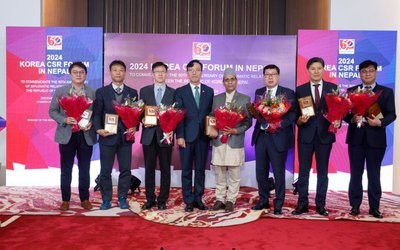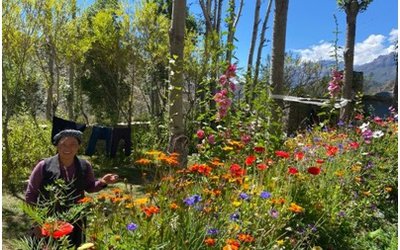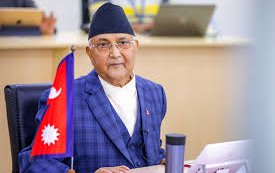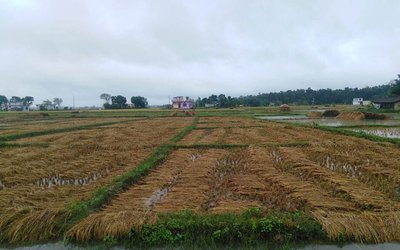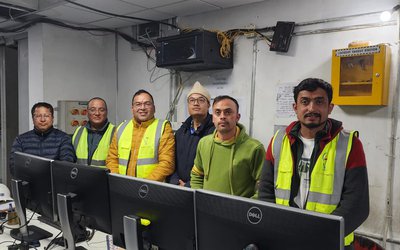Following an article on ‘Nepal in Climate Negotiations’, published in Spotlight (6-26 July 2012) fortnightly, this one attempts to share what has happened in the Least Developed Country (LDC) coordination during the last decade, and what can be done to make LDCs more visible and influential in the climate negotiation process during Nepal’s time as the Chair for LDC Coordination Group for 2013 and 2014.
The Climate Change Convention has obliged the developed countries to support LDCs, particularly their funding and technologies. For this, Parties have made a package of decisions in 2001 (adoption of LDC Work Programme and NAPA preparation guidelines, and establishment of LDC Fund and LDC Expert Group, LEG). In 2001, LDCs realised the need for and established the LDC Coordination Group.
Mali, Tanzania and Bangladesh, as the Chairs of the Group from 2001 to 2006 (two years for each country), made concerted efforts to make the Group visible in climate negotiations. The Maldives, during 2007 and 2008, focussed, inter alia, on adaptation as one of the pillars of the Bali Action Plan. Lesotho as a Chair of the Group for 2009 and 2010 expanded its coordinating role. In 2010 in Cancun (Mexico), three countries were fully engaged in key decision-making regarding LDC matters – Lesotho as the current Chair and The Gambia as the future Chair (for 2011 and 2012) of the Group on UNFCCC process, and Nepal as a global Chair of the LDCs. It worked well. In 2011, The Gambia and Nepal (including from NY mission) worked together in Durban. The Gambia has initiated a number of activities to make the LDCs more active and influential in climate negotiations.
The Chair of the Group has several responsibilities. Some of them include: (i) issue statements in plenary (opening and closing sessions) of the Conference of the Parties (COP) to the UNFCCC, COP serving as the Meeting of the Parties (CMP) to the Kyoto Protocol, its subsidiary bodies (SBs) and ad hoc working groups (AWGs); (ii) meet the COP President and Chairs of the SBs, AWGs and Convention’s other bodies, different negotiating groups, bilateral and multilateral partners, and climate stakeholders to seek their support for LDCs concerns; (iii) meet the press and inform the international community for supporting LDCs on climate change matters by engaging the spokesperson; (iv) organise and Chair daily meetings and ensure internal coordination during sessions; and (v) establish strong coordination and consultation, and ensure balanced LDCs representation in different committees. The Chair is equally responsible to prepare and ensure timely submissions in areas of LDC’s concerns, and raise funding to support LDCs participation. The current Chair has received technical and financial support and has supported some delegations from LDCs to participate in climate negotiations and report to the Chair on key areas, including adaptation, finance, technology, and mitigation. The current Chair is also taking evidence-based inputs, expert advice and services from selected professional organisations in key areas of negotiations and science of climate change. The Chair has equally coordinated to prepare key messages for particularly the ministers. Similarly, the Chair has successfully implemented its communication strategy by operating, inter alia, website and twitter. Some of the African LDCs speak other than English language and Chair has to address their language needs as well.
Nepal could build on what has been done so far. As the nearest climate change meeting will be in Bangkok from 30 August to 5 September, Nepal may wish to engage in stock taking on Group’s activities, and in consulting the previous chairs, subject specialists and institutions supporting the current Chair, on ways to strengthening linkages with New York for political mobilization. LDC participants, present in Bangkok, may also wish to know on Nepal’s coordination approaches for 2013 and 2014.
Taking into consideration the scope, roles and responsibilities of the Group on UNFCCC processes, and roles played by the current Chair till mid-2012, this position may provide Nepal ample opportunities to develop its human resources on climate negotiations. Engagement of Nepal’s negotiating team (at least from diplomatic and legal sectors, subject specialists, and scientists) might develop their negotiation skills and learn the procedures and substances. As negotiation takes place between Parties and Parties are represented by government delegations, it is equally necessary to follow the ‘code of conduct’ by team members who may be from outside the government organisations. Delegation members should not be limited in number. For example, Bangladesh included over 100 persons in government delegation to attend Durban Conference in 2011.
In 2013 and 2014, the Chair of the LDC Coordination Group might travel frequently to attend meetings, and conferences on behalf of the LDCs. Any obstacle to the Chair will not only affect Nepal but also to 48 LDCs. The ‘dream’ of making Nepal as the Chair of this Group in the fall of 2010 has become a ‘reality’ in mid-2012. This is an opportunity and should also be used rationally to address the needs of the climate vulnerable.
- SWISS SUPPORT: Construction Of A Trekking Trail In Koshi
- Dec 19, 2024
- PM OLI'S VISIT TO CHINA: BRI Agreement
- Dec 16, 2024
- RASUWAGADHI AND SANJEN: Begin Generation
- Dec 03, 2024
- NEPAL, INDIA ELECTRICITY TRADE Nepal's Advantage
- Dec 02, 2024
- PM Oli'S VISIT TO CHINA: Nepal's Dilemma
- Dec 01, 2024


